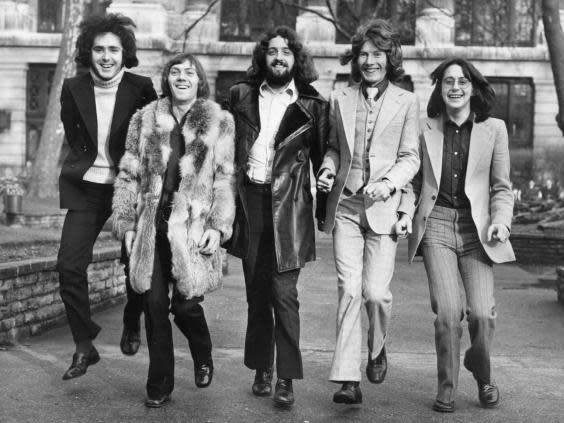Dean Ford: singer with Sixties chart-toppers The Marmalade
After relocating from London to Los Angeles in 1979 to escape his addiction to alcohol, the Scottish singer Dean Ford had to put on hold the musical dreams he had pursued with intermittent success for more than a decade since the early 1960s.
One night, working as a limousine driver, Ford’s passenger was Bob Dylan. In line with company policy, the former lead vocalist with The Marmalade did not strike up a conversation. Dylan never knew that his chauffeur once achieved something he has still not managed: a number 1 single in the UK.
Frustratingly for Ford, who has died aged 72 after complications caused by Parkinson’s disease, the record which secured that distinction 50 years ago this month as uprepresentative of the styles The Marmalade wanted to play. A cover of a Beatles track ought to have enhanced their credibility with the album-buying fans of progressive rock and harmony-driven folk rock. But the song they recorded was “Ob-La-Di, Ob-La-Da”, officially a Lennon-McCartney composition although the former derided it as “granny music”.
By the end of 1969, however, “Reflections Of My Life”, written by Ford and guitarist Junior Campbell, brought the group a British number 3 and broke the American Top 10. A plaintive, almost sombre ballad, which ironically is often described as Beatlesque, it highlighted Ford’s soulful delivery and the intricate harmonies of bassist Graham Knight and Campbell, who arranged the strings and brass. The royalties for “Reflections” and the hits that followed, “Rainbow” (number 15) and “My Little One” (number 6), would help to sustain Ford when the lean times came.
The songwriting credits reveal the songs to have been penned by Campbell-McAleese, for Ford was born Thomas McAleese in Whifflet, Lanarkshire. He found his voice in the Boys’ Brigade before forming his first band, The Tonebeats, at 13, and on leaving school at 16 joined The Cravats before progressing to The Monarchs. After performing with them at the Glasgow venue Barrowlands in 1963 he was invited to front the popular Glaswegian combo The Gaylords.

Having accepted the offer, he chose a new identity, later explaining: “I thought about Dean Martin and Tennessee Ernie Ford, then put them together.”
The group were rebranded Dean Ford and The Gaylords and in 1965 moved to Wimbledon. The Tremeloes recommended they sign with their manager, Peter Walsh. who oversaw yet another name change, to The Marmalade, and landed them a spot supporting Pink Floyd plus a residency at London’s Marquee club. Between 1968 and 1972 they had seven top 10 hits, becoming the first Scottish band to reach No 1 in the process, but like Love Affair they never quite shook off the “teenybopper” tag.
After members drifted into management, production and solo projects in the early 1970s Ford was left as the principal songwriter in a three-man Marmalade (they dropped the definite article). One of his finest compositions, “Wishing Well”, had a west coast feel, but the single flopped. He left in 1974 and released an album the following year that fared no better.
Ford had become an alcoholic and the move to California was an attempt to address his problems. “I wanted to start over. A new life,” he said in 2016. “Trouble is, I brought myself with me.” It took him until 1986 to get sober. He immersed himself in music, becoming inseparable from his guitar, touring with the Sensational Alex Harvey Band, contributing to a Frankie Miller tribute CD and making four solo albums. The last, My Scottish Heart, came out in November.
Ford married in 1968 but was soon divorced. He is survived by a daughter, Tracey, who described him on his death as an “amazing man, gentle soul, extremely talented musician and great father”.
Dean Ford (Thomas McAleese), singer, songwriter and musician, born 5 September 1946, died 31 December 2018

 Yahoo News
Yahoo News 